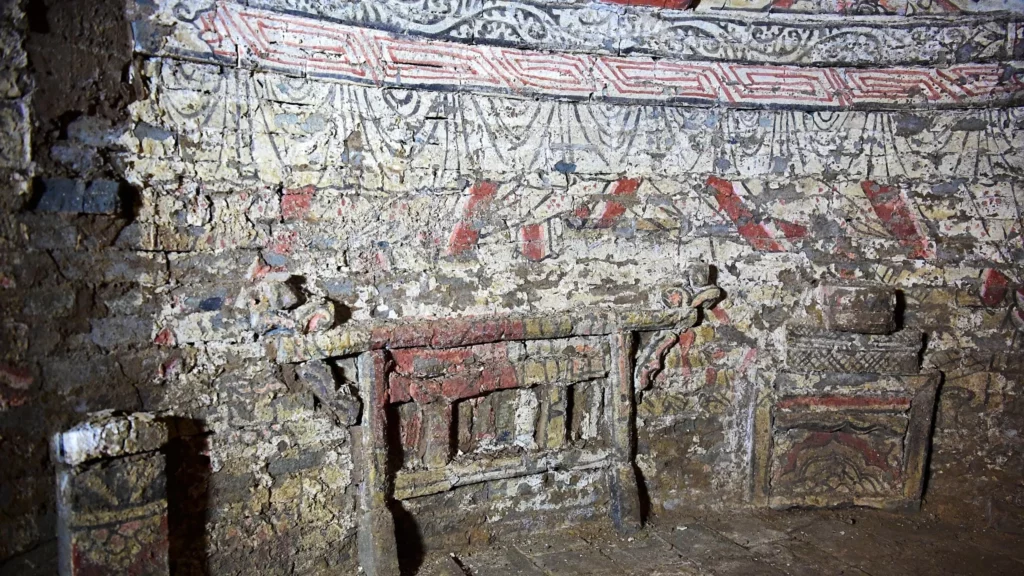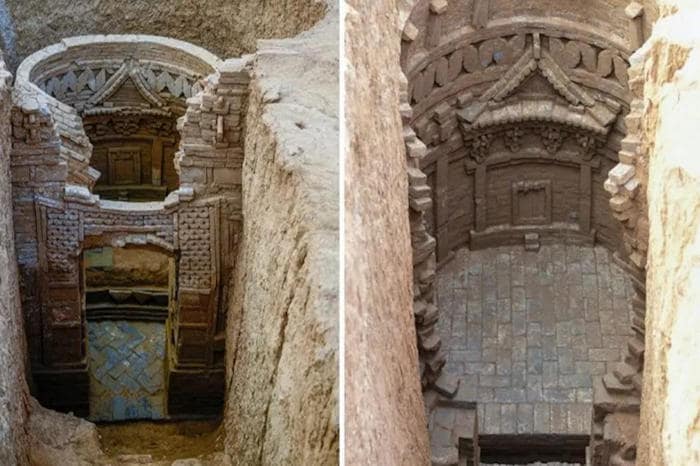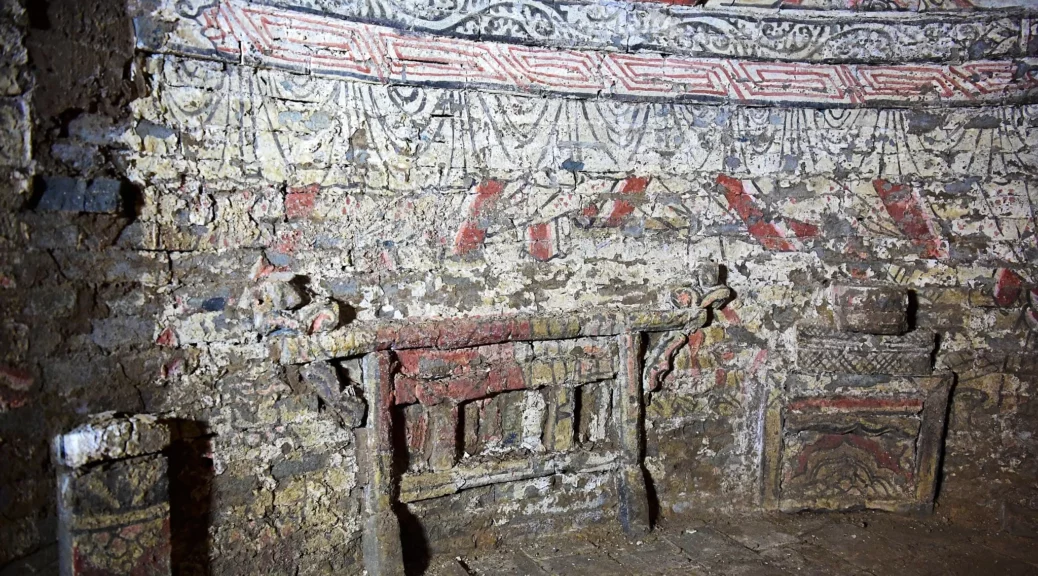12 tombs with Beautiful Decorations and Carved Bricks from the period of Kublai Khan, the grandson of Genghis Khan, were found in China

China has a rich history. In addition to the fossil records from the Paleolithic Period, the country has witnessed the rise and fall of several empires and dynasties.
Recently, archaeologists excavating in Shandong, China, have unearthed 12 incredible tombs estimated to be around 700 years old.
Archaeologists have excavated 12 ancient tombs dating back to the Yuan Dynasty (1271-1368) in Jinan, in east China’s Shandong Province, the local archeology institute said Wednesday. This is one of the most important finds ever made in the eastern Chinese province.
The Yuan dynasty was founded by conqueror Genghis Khan’s grandson, Kublai Khan. Based on an inscription discovered at the burial complex, the tombs belong to a family called Guo.
Murals in one of the Yuan Dynasty tombs with two burial chambers were comparatively well preserved.
The carved brick murals were created using chisels and wooden hammers to make patterns in the bricks. The magpies and branches on the murals were a classic Chinese design for good fortune.

According to the institute’s director Li Ming, this was the largest cluster of Yuan Dynasty brick mural tombs unearthed in the province.
“The tombs were arranged in an orderly and apparently planned way, and some of the owners were related by blood, providing new material for the study of the arrangement of family cemeteries in the Yuan Dynasty,” Li said.
The excavation, which started on April 23, turned up more than 60 pieces of pottery and porcelain ware, bronze mirrors, copper coins, and other cultural artifacts.
The results will aid in the study of porcelain produced in the region and its environs during the Yuan Dynasty.
Kublai Khan, the fifth Khagan emperor of the Mongol Empire and a member of the Borjigin family reigned it from 1271 until 1368.
